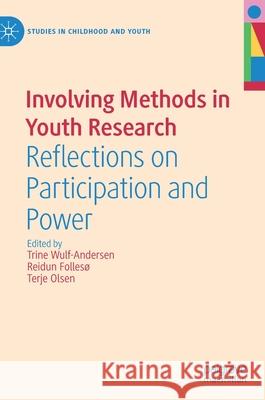Involving Methods in Youth Research: Reflections on Participation and Power » książka
topmenu
Involving Methods in Youth Research: Reflections on Participation and Power
ISBN-13: 9783030759407 / Angielski / Twarda / 2021 / 276 str.
Kategorie:
Kategorie BISAC:
Wydawca:
Palgrave MacMillan
Seria wydawnicza:
Język:
Angielski
ISBN-13:
9783030759407
Rok wydania:
2021
Wydanie:
2021
Numer serii:
000401213
Ilość stron:
276
Waga:
0.50 kg
Wymiary:
21.01 x 14.81 x 1.75
Oprawa:
Twarda
Wolumenów:
01
Dodatkowe informacje:
Wydanie ilustrowane











